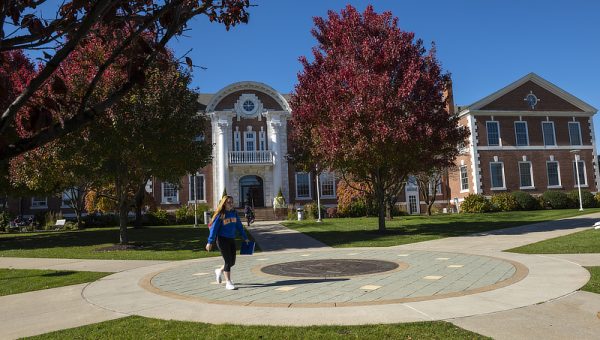Consolation versus call to action: Differences between the 2017 and 2021 Presidential Inaugurations
Former President Donald J. Trump and President Joseph R. Biden’s inaugurations appear to have been addressed to entirely different nations, given exacerbated political divisions and the impact of COVID-19. At the same time, little has changed regarding issues such as white supremacy, systemic racism and domestic terrorism. The only difference is that Biden is addressing these issues directly. Only time will tell the extent to which they will be addressed, but as a nation, we must hold Biden accountable for his promises.
When Trump addressed the nation in his 2017 inauguration, he said that we “all enjoy the same glorious freedoms, and we all salute the same great American flag.” While his patriotic rhetoric may be in line with presidential tradition, it presents a glorified view of America. Throughout his inaugural speech, there was an overarching idea that his presence would solve all the issues present in Barack Obama’s administration.
Many of the issues that Trump pledged to solve in 2017, such as “poverty in our inner cities,” or “an education system… which leaves our… students deprived of all knowledge” have not been addressed. The disproportionate funding of the military over the education system highlights Trump’s susceptibility to the same “empty talk” he promised to cease. Moreover, throughout his administration, he has failed to address systemic racism or to merely denounce white supremacy.
Ultimately, Biden is entering an administration with far more to handle than any presidential candidate could have anticipated in 2019. When Biden recently addressed the nation for his inaugural speech, his rhetorical stance strayed from Trump’s “America First” ideals and recognized the role of interdependence on the global stage. In fact, he asserted that he would work to make America the “leading force for good in the world.”
While Biden certainly displayed a similarly unrealistic sense of optimism regarding his presidency (“our children’s children will say…they did their duty, they healed a broken land”), the difference between his stance and Trump’s is that Biden acknowledges issues such as systemic racism by name and the years of work ahead of us. Instead of absolute phrases that Trump employed like “we will not fail,” or “we will make America great again,” Biden reiterates that in order to heal America, hard work is necessary: “Now we’re going to be tested. Are we going to step up?”
Of course, such brazen optimism should make us wary as we have just emerged from four years of utter dishonesty, not to mention that Biden hasn’t always held such a firm stance on many issues he is tackling today – especially regarding systemic racism.
With Kamala Harris officially sworn in as the first female, Black and South Asian vice president, the U.S. is stepping into a period of immense historical importance. Our future is looking more hopeful by the day, with some of Biden’s first executive orders addressing issues like COVID-19, systemic racism and climate change. While these noble initiatives will begin paving the way for the next four years, some of his executive orders have been criticized as weak, and he is only partially addressing many issues – especially with systemic racism in private prisons. Ultimately, while Biden’s commitment to his promises sparks hope, we must continue to hold him accountable and work to challenge him in the same ways that he is challenging us.

Samuel Weinmann is a passionate journalist who is a junior international affairs major at the University of New Haven. As the editorial head of the Charger...



